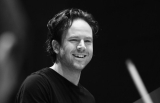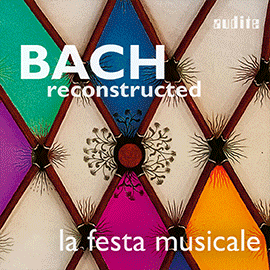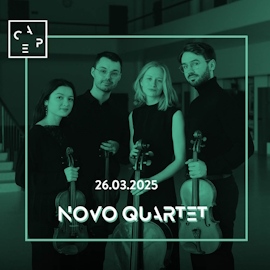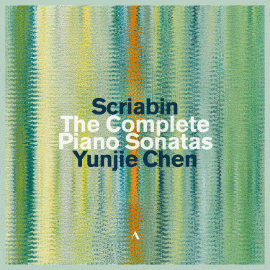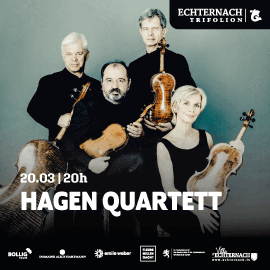Als gewiefter Opernsänger versteht der aus Izmir (Türkei) stammende Bariton Kartal Karagedik, seit 2015 Ensemblemitglied der Staatsoper Hamburg, die Auswahl an bekannten und selten gehörten, von antiker Mythologie inspirierten Liedern Franz Schuberts ausdrucksvoll zu singen. Read More →
Das Duo Lionel Handy, Cello, und Jennifer Walsh, Klavier, entführt die Zuhörer in eine ebenso stimmungsvolle wie wenig bekannte Welt. Von den vorgestellten Komponisten ist wohl lediglich Frank Bridge geläufig. Die Namen Doreen Mary Carwithen, William Yates Hurlstone sowie Felix Swinstead dagegen sind vielen noch nicht begegnet. Die vier Sonaten für Cello Sonaten und die beiden kurzen Stücke entstanden mehr oder weniger in der ersten Hälfte des letzten Jahrhunderts. Read More →
Starting in September 2026, German conductor Marc Albrecht, 61, will assume the role of chief conductor of the Antwerp Symphony Orchestra. Before this official appointment, audiences in Antwerp will have the opportunity to see him performing with the orchestra, in the spring of 2026. Read More →
Firmly rooted in Western musical culture, she has always maintained a link with the musical tradition of her country of origin, also drawing inspiration from other musical latitudes and from extra-musical artistic and cultural universes.
Your writing happens on paper, giving up the possibility offered by the computer to edit your scores, which are clean but at the same time creative, works of art in themselves. Is your writing always linear, without second thoughts?
I always compose at my desk, without a computer or a keyboard. I never play the notes I write on the staff. I was brought up this way: it’s my habit and it’s the only way I can compose. Creating a piece is a job where I have to make many decisions on many different levels, including the entire context, focusing less on the sound of each individual note. This process takes a lot of time, also because I make sketches first. And, of course, it’s always possible that I’ll have relapses or second thoughts, or that I’ll throw away some material and start over again. Read More →
The Los Angeles Opera dropped the world premiere of Missy Mazzoli’s new opera ‘Lincoln in the Bardo’ in a cost-cutting move. Adapted from George Saunders’ novel the piece was to debut in Los Angeles in February 2026, and will instead open at New York’s Metropolitan Opera in October 2026.
The Haydn Orchestra in Bolzano has a new Principal Conductor: Alessandro Bonato will assume this post starting in October 2025, guiding the artistic development of the ensemble over the next three seasons. Read More →
Victoria Symphony (British Columbia, Canada) has extended the tenure of Christian Kluxen as Music Director until 2028. He is in this position since eight years. Read More →
Zu Beginn neigt man dazu, die Auszüge aus Purcells Suite zu The Fairy Queen als bloßes Alibi und galanten Übergang zur Kantate von Thierry Escaich zu betrachten. Doch mit dem Einstieg zu ‘Tombeau pour Aliénor’ wird sehr schnell klar, dass hier ein kluges, dramaturgisch und musikalisch überzeugendes Programm eingespielt wurde. Read More →
Die Pianistin Maria Pia Vetro spielt eine Auswahl von Stücken der italienischen Komponisten Muzio Clementi und Ottorino Respighi. Besonders in einigen Kompositionen von Clementi äußert sich ein großartiger Charme. Ihr Musizieren zeichnet sich durch Klarheit und Musikalität aus. Sie ist zu einem sehr wachen und spontanen Spiel fähig und zeigt auch viel poetische Sensibilität. Read More →
Ibragimova und Tiberghien spielen wie immer in wunderbarem Einklang ihrer überragenden Partnerschaft. Dabei haben sie nicht nur die Struktur und künstlerische Gestaltung der Werke im Auge und richten daran ihren interpretatorischen Weg aus. Sondern sie achten auch auf die sorgfältige Formung der Details wie Tongebung, das Singen von Melodien oder die Hebung von Spannungen, gar nicht zu schweigen von der Intensität und nach vorne fließenden Lesart ihrer Interpretationen. Read More →














